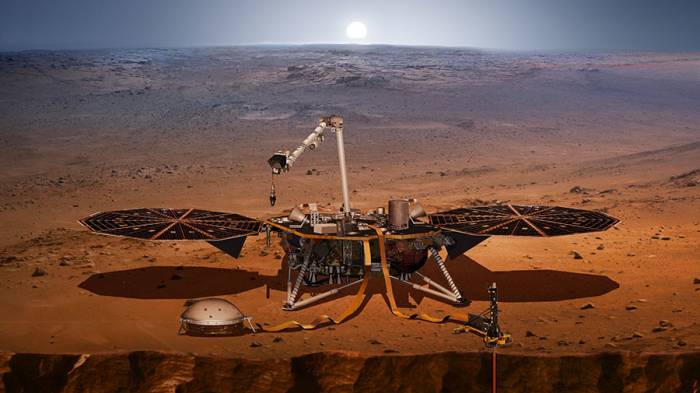The journey to the center of the desolate planet will begin in approximately 35 days, when the InSight lander – which doubles as a seismograph station – launches from California’s Vandenberg Air Force base.
The mission to find “marsquakes” or evidence of plate movements on the icy planet looks set to kick off on May 5. While rock samples beneath the surface of Mars have already been studied, relatively little is known about the planet’s seismic history.
The experiment, which involves the InSight drilling into the interior of Mars, as well as placing a seismometer on the surface.
“In some ways Insight is like a scientific time machine that will bring back information about the earliest stages of Mars’ formation four-and-a-half billion years ago,” said NASA Insight investigator Bruce Banerdt.
“It will help us learn how rocky bodies form, including Earth, its moon and even in other solar systems.”
“During the formation, this ball of featureless rock metamorphosed into a diverse and fascinating planet, almost like caterpillar to a butterfly,” he added. “We want to use seismology to learn why Mars formed the way it did, and how planets take shape in general.”
By studying the seismic activity on the planet scientists hope to discern the differences between Earth and Mars’ make-up. The unmanned expedition represents the first time since the Apollo Viking missions that ground movements have ever been analysed beyond Earth.
Back in the 1970s, astronauts attempted to study vibrations on the moon by setting off mortar rounds on the surface. That same decade NASA hit a snag with seismographs on Mars when they were disrupted by extreme winds on the planet.
More about: NASA
















































